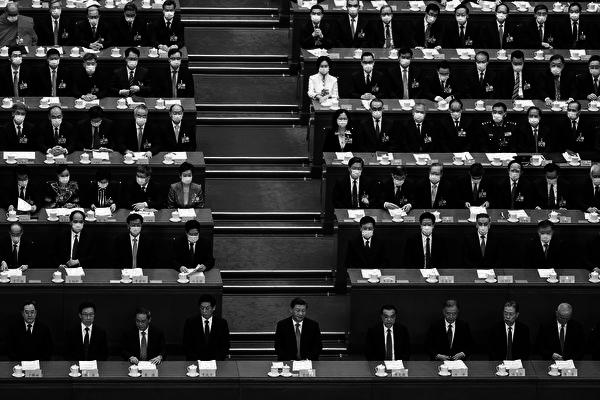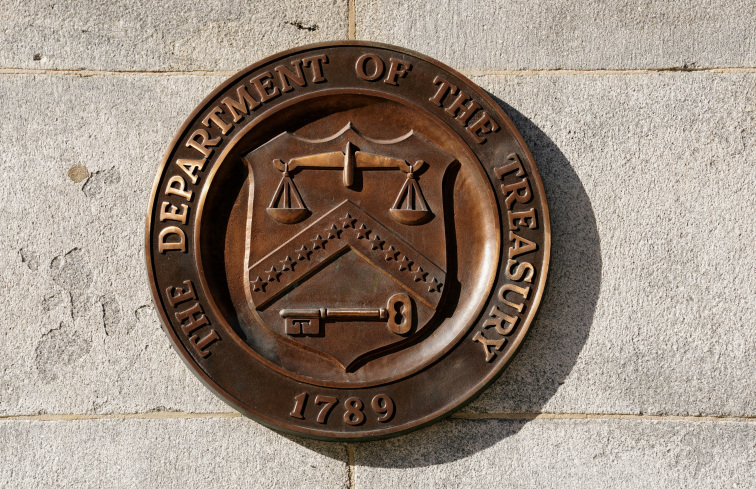On March 5, 2023, CCP leaders attended the opening session of the National People's Congress.
[People News] On July 30, the Chinese Communist Party (CCP) Politburo convened and announced the schedule and agenda for the upcoming Fourth Plenary Session, set for October. Amid this politically sensitive time, a new version of the nine-member Politburo Standing Committee (PSC) lineup has emerged.
There have been many rumoured versions of the new PSC lineup circulating previously. On July 30, independent commentator Cai Shenkun revealed a new nine-member list on his program.
According to this version:
-
Xi Jinping steps down as General Secretary, but retains the positions of President and Chairman of the Central Military Commission.
-
Ding Xuexiang becomes the new General Secretary and Vice Chairman of the Central Military Commission.
-
Chen Jining is appointed Premier of the State Council.
-
Li Qiang is reassigned as Chairman of the National People's Congress.
-
Cai Qi becomes Chairman of the Chinese People's Political Consultative Conference (CPPCC).
-
Yin Li, the current Party Secretary of Beijing, replaces Cai Qi as First Secretary of the Secretariat, President of the Central Party School, and Director of the General Office of the CCP Central Committee.
-
Zhang Guoqing, the current Vice Premier, is appointed Secretary of the Central Commission for Discipline Inspection (CCDI).
-
Zhang Youxia is promoted to First Vice Chairman of the Central Military Commission and joins the PSC.
-
Yuan Jiajun, currently the Party Secretary of Chongqing, becomes Executive Vice Premier.
Wang Huning and Li Xi are removed from the PSC and step down from their positions.
Cai Shenkun noted that if this lineup is real, it would largely resemble a transitional or caretaker government, providing Xi Jinping with a buffer period. Ultimately, the CCP would return to the traditional seven-member PSC format.
However, Cai emphasised that he cannot confirm the authenticity, accuracy, or authority of the list. But one thing is certain, he says: although Xi still nominally holds the chairmanship of the military commission, military power has effectively shifted to Zhang Youxia.
On July 30, Professor Zhang Tianliang of Fei Tian College analysed the Politburo’s statement in his program Tianliang Analysis.
He pointed out: "The meeting emphasised that economic work for the second half of the year should be guided by Xi Jinping Thought on Socialism with Chinese Characteristics for a New Era, and adhere to the general principle of seeking progress while maintaining stability."
Zhang Tianliang noted that this clearly indicates Xi is still steering the ship, especially in economic matters. The phrases used are classic Xi rhetoric.
He further analysed that the main reason for replacing Xi would be his mishandling of the Chinese economy. Therefore, economic policies should no longer be guided by Xi’s ideology, and a new economic approach is needed.
Zhang believes that Xi is unlikely to step down before December 31. If he doesn’t resign at the Fourth Plenary Session, he won’t give up any other positions either — a conclusion that, while disappointing to many, seems realistic.
Recently, scenarios envisioning a "China without the Communist Party" have begun to appear in public discourse. Professor Wu Guoguang, a senior research fellow at Stanford University's Centre on China’s Economy and Institutions, stated that “moving toward a post-Communist China” is becoming a trend.
Wu explained that China’s current economic crisis is not merely the result of a few bad policies. It stems from deep-rooted contradictions between two systems: one-party authoritarianism and a market economy operating within that political framework. This structural contradiction has made the "China model" inherently unsustainable, and Xi Jinping’s rule has only worsened its instability.
Wu argues that in order for China to have any hopeful future, it must exit the Communist Party system — that is, move toward a China beyond the CCP.
External analysts point out that no matter who enters or exits the PSC, or even if the General Secretary changes, if the new government continues operating under the Communist system, then it's simply “old medicine in a new bottle.” In such a case, China and its people will still have no real future.
(First published by People News)









News magazine bootstrap themes!
I like this themes, fast loading and look profesional
Thank you Carlos!
You're welcome!
Please support me with give positive rating!
Yes Sure!